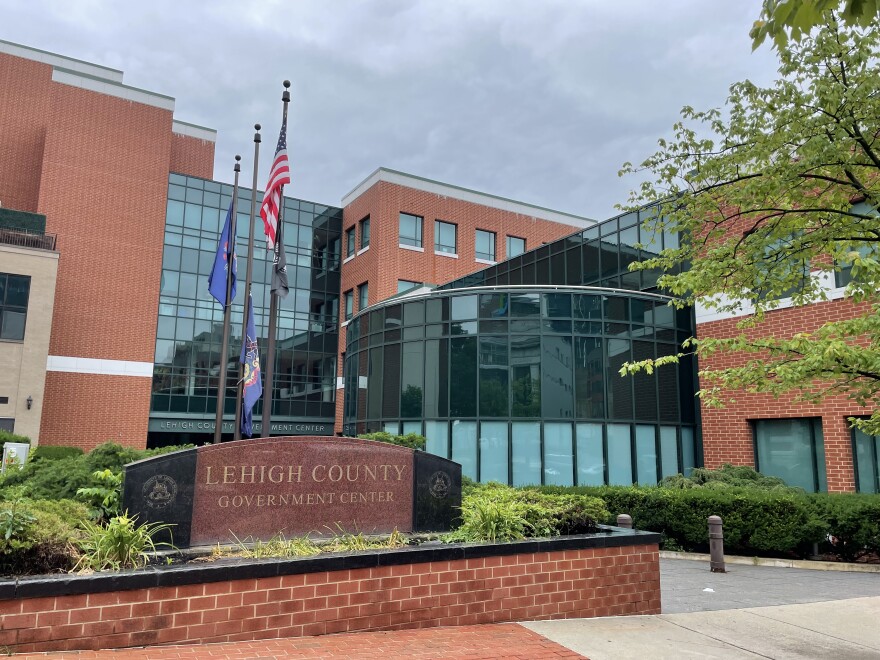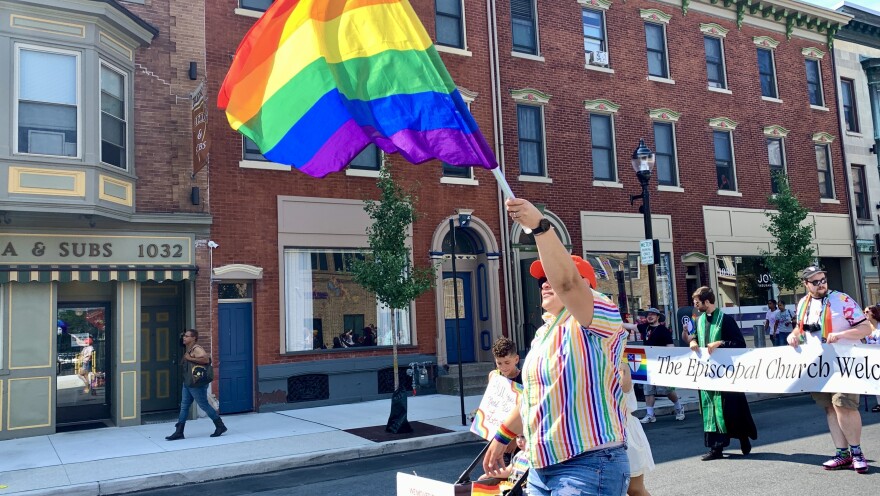ALLENTOWN, Pa. — Progress on a wide-reaching non-discrimination ordinance introduced in Lehigh County has been delayed by changes proposed by administration and board members.
Discussion on the bill was pushed back because of conflicts with the amendments and commissioners not having a chance to properly review them.
Commissioners got the amendments earlier in the day before the Nov. 8 meeting.
"Given the magnitude and the responsibility of this particular policy, which I'm supportive of, I think we have a responsibility to get it right so that it can be effective," Commissioner Geoff Brace said.
The bill proposes to expand on protections offered by the state and some local municipalities to establish new protected classes from discrimination in employment, housing, education, health care and public accommodations throughout all of Lehigh County.
"It's been a long time coming, and I'm just very excited to be able to get this on the agenda."Lehigh County Commissioner Zach Cole-Borghi
Lehigh County Human Rights Council, which was formed by the county in 2021, created the bill. It was sponsored and presented by Commissioner Zach Cole-Borghi, who served on the board.
"It's been a long time coming, and I'm just very excited to be able to get this on the agenda," Cole-Borghi said at the meeting at which the bill was introduced.
The original legislationestablishes new protected classes in the county, including actual or perceived race, ethnicity, color, religion, creed, national origin, ancestry and sex (including pregnancy, childbirth and related medical conditions).
Also, gender identity, gender expression and sexual orientation, genetic information, marital status, familial status, GED rather than high school diploma, physical or mental disability (non-job related), relationship or association with a disabled person and source of income.
Also, age (over 35), height, weight, veteran status, citizenship or immigration status, use of guide or support animals and/or mechanical aids, or domestic or sexual violence victim status.
Varied Amendments Proposed
Amendments requested from Lehigh County administrative staff removed education and healthcare protections from the bill, as well as protections for independent contractors.
It also eliminated a measure that prevents employers from eliciting information or keeping records related to the protected class of applicants for employment.
"There are some common themes, but there are some places where there's divergence in policy and administrative preferences. And I don't think we're going to be able to, on the fly, adequately consider these this evening."Lehigh County Commissioner Geoff Brace
And it removes measures that prevent employers from asking about former conviction status outside of clean driving records and child abuse clearance checks.
Administrative amendment requests also would eliminate height and weight as protected classes.
It also eliminates protections from refusals to lend money related to housing, requests to make reasonable accommodations for equal opportunity, or allowing modification at the expense of a tenant for housing based on protected classes.
And it would eliminate a measure preventing applications for sale, lease, or housing loan from inquiring about protected classes.

Commissioner Jeffrey Dutt submitted his own proposed amendment, which would eliminate sexual orientation, genetic information, marital status, source of income, height, weight and citizenship or immigration status from the list of protected classes.
The amendment also would place the proposed human relations investigator position under the department of community and economic development, rather than the office of human relations.
Commissioner Dan Hartzell also sent in a proposed amendment, adjusting wording to emphasize the county administration's authority over the proposed Human Relations Commission.
"Some of them are a little bit easier to work with, others are more in depth and extensive," Commissioner Geoff Brace said.
"There are some common themes, but there are some places where there's divergence in policy and administrative preferences. And I don't think we're going to be able to, on the fly, adequately consider these this evening."
Delaying discussion
Brace said he supported working with the three amendments to combine policy and administrative components into just one or two amendments.
"It makes it a little longer of a process," Brace said. "But I am concerned that if we tried to take these on tonight, we would just walk ourselves in circles and get really frustrated with each other."
Commissioners unanimously voted to defer discussion until the following meeting, on Tuesday, Nov. 21.
"It's been a long time since Allentown's law passed, which was 22 years ago to add sexual orientation and gender identity. There's a lot of people in the county, it's very significant, and they should be protected from discrimination. And I think this county agrees with that."Lehigh County Human Rights Council Vice-Chairwoman Liz Bradbury
Lehigh County Human Rights Council Vice-Chairwoman Liz Bradbury said the legislation was developed by the group over the past two and a half years in the hopes it could protect more people in the county from discrimination than had been legally protected before.
"It's been a long time since Allentown's law passed, which was 22 years ago to add sexual orientation and gender identity," Bradbury said.
"There's a lot of people in the county, it's very significant, and they should be protected from discrimination. And I think this county agrees with that."
The original anti-discrimination ordinance for the City of Allentown was passed in the 1960s. It protected from discrimination based on age, race and sex in employment, housing and the use of public facilities.
After many unsuccessful attempts, LGBTQ protections were added to the legislation in 2002.
Brace thanked Bradbury, a local activist and co-founder of the Bradbury-Sullivan LGBT Community Center in Allentown, for her role as a "tremendous resource" during the process.
How the bill would be enforced
The bill establishes a new Human Relations Commission and creates a new job of Human Relations Investigator under the office of human resources.
According to the bill, if the commission determines it's not possible to resolve the complaint informally, a public hearing will be held under oath.
If, as a result of evidence considered at the hearing, discriminatory practices were found, the commission would state its finding, require a cease and desist from unlawful practices, and "take such additional action as the commission deems appropriate."
It states the commission has the authority to order any remedies available under the Pennsylvania Human Relations Act or requiring changes of practices, restitution or, in egregious instances, a fine of no more than $500.
The legislation would take effect for all municipalities except Allentown and Bethlehem on Jan. 1, or 30 days after enactment, whichever would be later.
For Allentown and the part Bethlehem in Lehigh County, it would come into effect 15 months after enactment "provided that no action has been taken by the governing body of either of those cities to be excluded."
It states that each individual city could opt to be governed or excluded from the potentially expanded coverage of the ordinance beyond their own non-discrimination laws, if passed.


